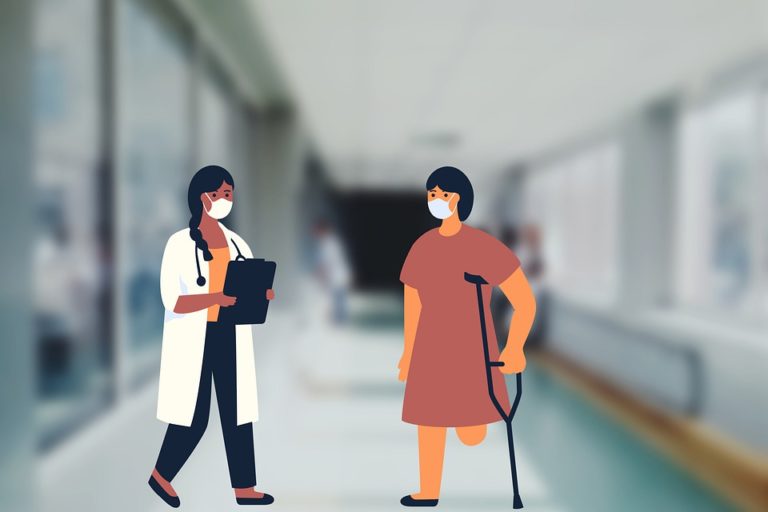Book Appointment Now

The Evolution of Nursing Education
The field of nursing education has undergone significant changes over the years, with recent advancements accelerated by the global pandemic. The evolution of nursing education has led to the integration of online learning and virtual simulations, transforming how nursing students are trained. This article delves into the shift towards online nursing programs, the role of technology in nursing education, role of informatics specialist in healthcare and how these changes are preparing nursing students for real-world challenges.
The Shift Towards Online Nursing Programs
One of the most significant changes in modern nursing education is the transition to online learning. The pandemic acted as a catalyst, pushing educational institutions to adopt online nursing programs that provide students with the flexibility to learn from anywhere.
Benefits of Online Learning for Nurses
Online nursing programs offer numerous benefits, making education more accessible and adaptable to the needs of today’s students.
- Flexibility: Students can access course materials and lectures at their convenience, allowing them to balance their studies with work and other responsibilities.
- Accessibility: Online programs break down geographical barriers, enabling students from different parts of the world to pursue nursing education.
- Cost-Effective: The reduction in commuting and accommodation costs makes online learning a more affordable option for many students.
Do you need paper writing help about technology and the evolution of nursing education? ![]()
Challenges of Online Nursing Education
While online learning for nurses offers many advantages, it also presents challenges that need to be addressed to ensure a comprehensive education.
- Lack of Hands-On Experience: Nursing is a hands-on profession, and online programs must find ways to incorporate practical experience.
- Technical Issues: Students may face difficulties with technology, such as unreliable internet connections or lack of access to necessary equipment.
- Self-Discipline: Online learning requires a high level of self-discipline and time management skills, which can be challenging for some students.
The Role of Technology in Nursing Education
Technology in nursing education plays a crucial role in enhancing the learning experience and preparing students for the demands of the healthcare industry. The use of virtual simulations in nursing is a prime example of how technology is transforming education.
Virtual Simulations in Nursing
Virtual simulations allow students to practice clinical skills in a controlled, risk-free environment. These simulations provide realistic scenarios that mimic real-life situations, helping students develop critical thinking and decision-making skills.
- Realistic Training: Virtual simulations offer a safe space for students to practice procedures and decision-making without the risk of harming actual patients.
- Immediate Feedback: Instructors can provide instant feedback during simulations, helping students learn from their mistakes and improve their skills.
- Adaptability: Simulations can be tailored to various learning levels and can be repeated as needed to reinforce learning.
Impact of Technology on Nursing Education
The integration of technology in nursing education has made it possible to offer more personalized and interactive learning experiences.
- E-Learning Platforms: Online platforms provide students with access to a wealth of resources, including video lectures, interactive quizzes, and discussion forums.
- Digital Assessments: Technology enables more efficient assessments, allowing educators to track student progress and identify areas for improvement.
- Collaborative Learning: Online tools facilitate collaboration among students, enabling them to work together on projects and share knowledge.
Preparing Nursing Students for Real-World Challenges
As nursing education continues to evolve, it is essential to ensure that students are adequately prepared for the challenges they will face in the real world. The integration of online learning and technology in nursing education plays a critical role in this preparation.
Bridging the Gap Between Theory and Practice
One of the key goals of modern nursing education is to bridge the gap between theoretical knowledge and practical application. Virtual simulations and online nursing programs provide opportunities for students to apply what they have learned in a controlled environment before transitioning to real-world settings.
- Clinical Placements: While online programs offer flexibility, clinical placements remain an essential component of nursing education, providing hands-on experience in healthcare settings.
- Interdisciplinary Learning: Collaborating with other healthcare professionals during simulations helps students understand the importance of teamwork in patient care.
- Critical Thinking Skills: The challenges presented in virtual simulations encourage students to develop critical thinking and problem-solving skills that are essential in the nursing profession.
Adapting to a Changing Healthcare Landscape
The healthcare industry is constantly evolving, and nursing education must adapt to keep pace with these changes. The incorporation of technology in nursing education ensures that students are well-equipped to handle the demands of modern healthcare.
- Telehealth Training: With the rise of telehealth, nursing students must be trained to deliver care remotely, using digital tools and platforms.
- Cultural Competency: As patient populations become more diverse, nursing education must include training on cultural competency to ensure that all patients receive appropriate and respectful care.
- Lifelong Learning: The rapid pace of advancements in healthcare technology requires nurses to engage in lifelong learning to stay current with new practices and tools. See also: Top 3 Trends in the Nursing Industry.
The evolution of nursing education reflects the broader changes occurring in the healthcare industry. The shift towards online nursing programs, the integration of technology in nursing education, and the focus on preparing students for real-world challenges are all essential components of modern nursing education. For nursing students, understanding and adapting to these changes is crucial for their success in the profession. By embracing these innovations, nursing education is better equipped to meet the needs of today’s healthcare environment and prepare the next generation of nurses for the future. Check out a sample paper that Explores What the Future in Nursing will be like.







